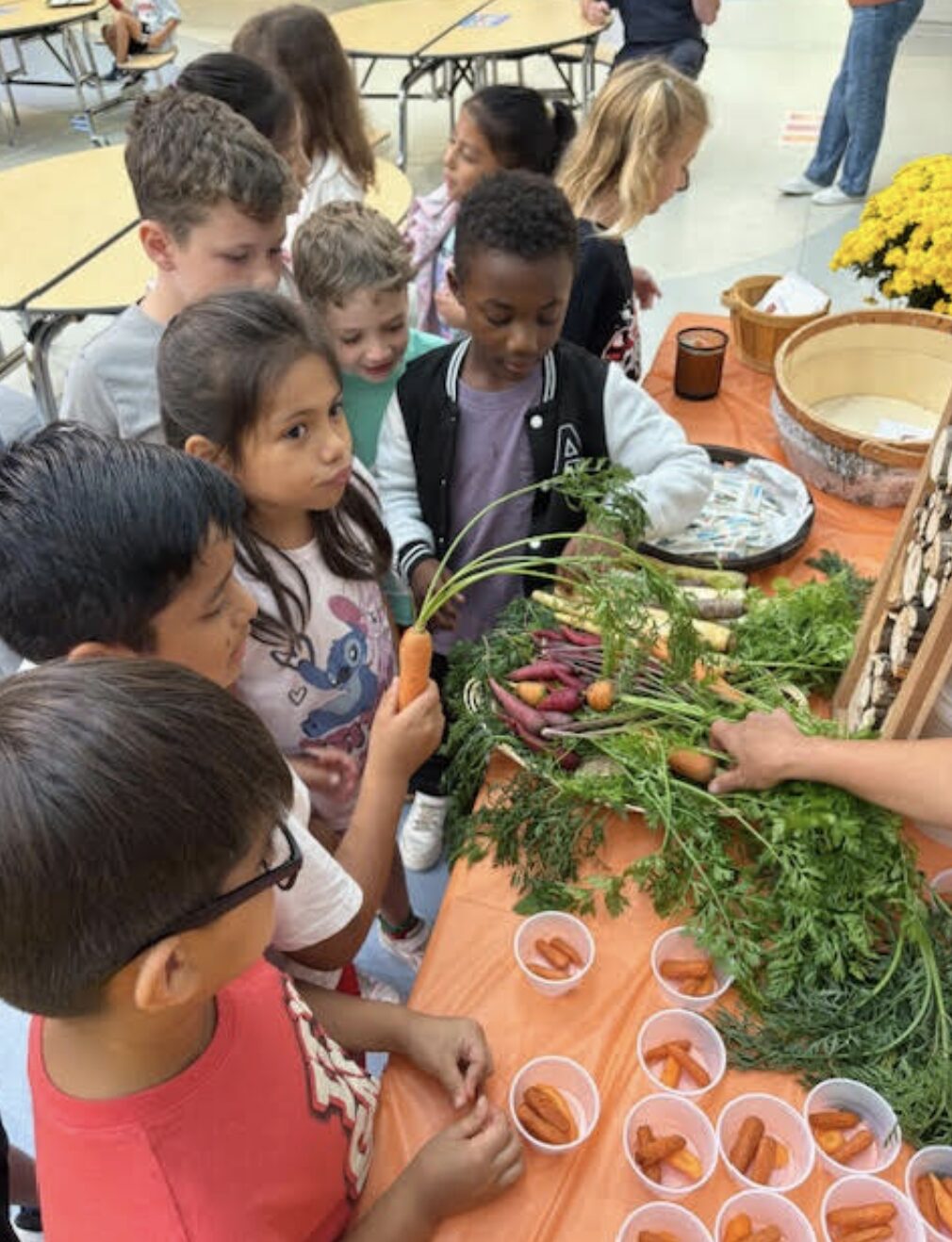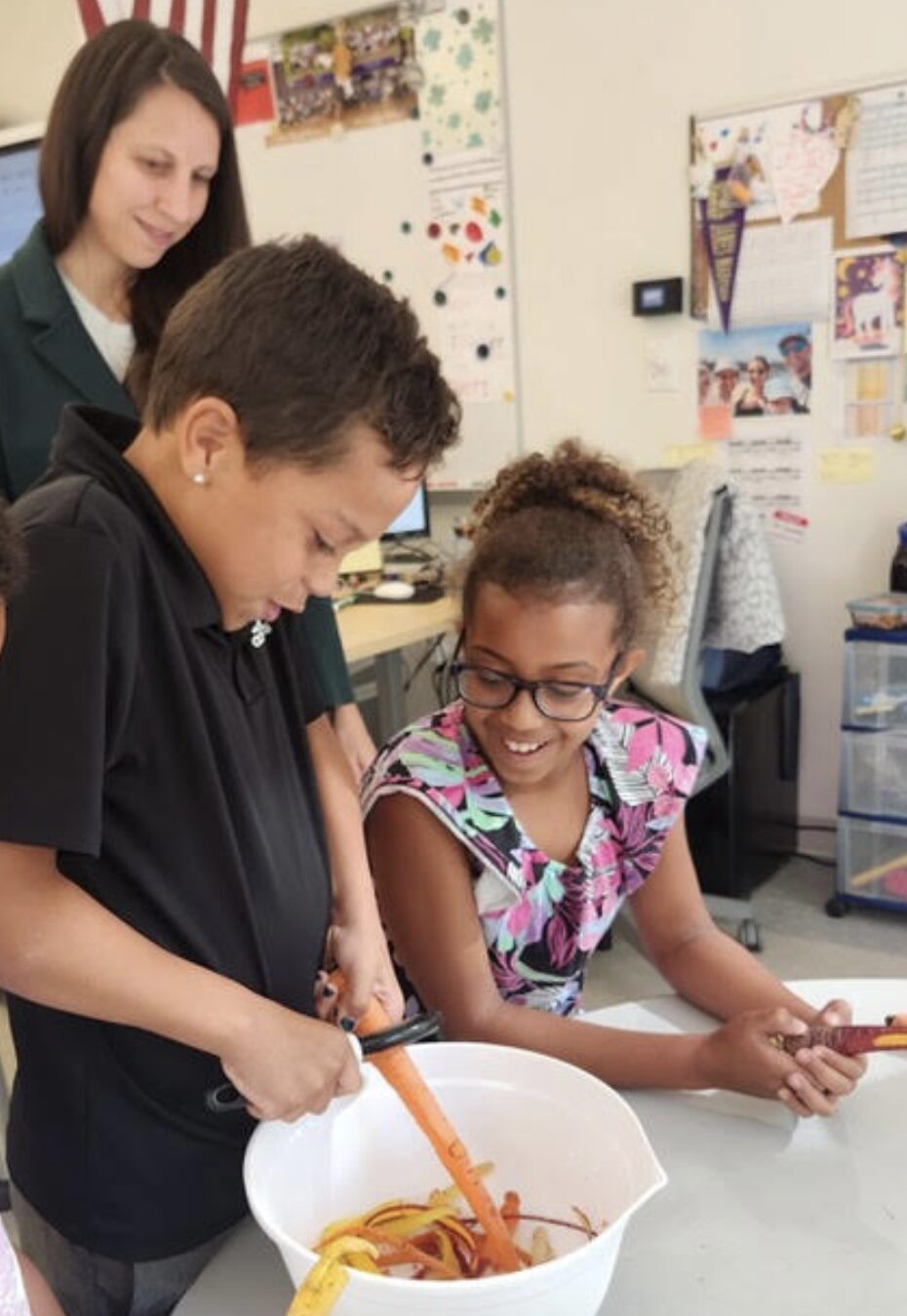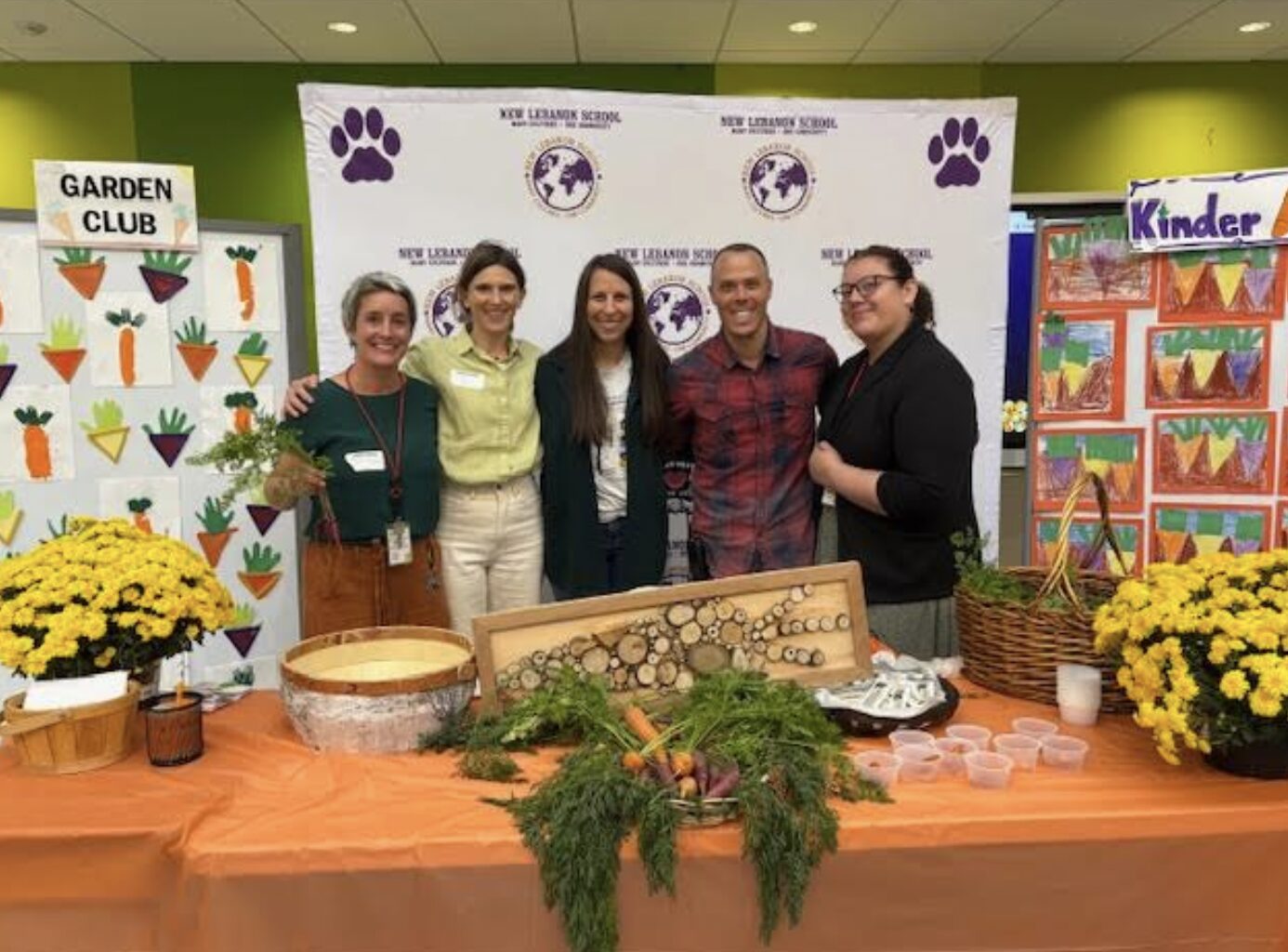By Ali Ghiorse
In early October New Lebanon School launched “Harvest of the Season,” their seasonal Farm To School program.
The day featured the carrot. Students juiced, made carrot ribbon salad, watched a carrot-top pesto demonstration and participated in a carrot taste test. (The raw carrot triumphed over the roasted one with a maple glaze!) Under the warm autumn sun, Farmer Liz from Fairgate Community Farm, a regenerative urban farm in Stamford, led the students in vegetable growing activities.
The highlight however, was New Lebanon’s exemplary school garden where students harvested baby ‘purple haze’ carrots. New Lebanon is offering students the opportunity to learn about and experience local foods, menu planning, and hands-on gardening.
Greenwich Public Schools is connected to a larger statewide and national Farm To School movement through the Local Food For Schools Cooperative Agreement Program (LFSP).
In 2022 the United States Department of Agriculture (USDA) initiated the LFSP in order to fortify regional supply chains, foster crucial stakeholder partnerships and improve the health and well-being of all students.
Greenwich Public Schools has received a total of $44,000 through this program, enabling them to source grass-fed beef and some produce from the Northwest CT Food Hub in Litchfield County since January 2025.
The state will fill in funding gaps thanks to the unanimous passage of H.B. 7013 in June 2025. H.B. 7013 has allocated $5million into local procurement including Farm To School programs such as New Lebanon’s Harvest of the Season.

Implementing and sustaining Farm To School programs takes multi-stakeholder partnerships and training. At the end of June a team of farm to school enthusiasts from New Lebanon’s attended VT FEED’s three-day Northeast Farm To School Institute. The Farm To School framework connects the three C’s: Classrooms, Cafeterias, and Communities in pursuit of a healthier, more just food system.
These initiatives build relationships between schools and local farms while bringing locally grown foods to cafeterias and classrooms. Through hands-on learning, students can connect the dots between where their food comes from, the impacts of their food choices on their bodies, and their local farming community.


With adequate funding and support from community based organizations, public school classrooms, cafeterias and gardens have the potential to be a nexus of transformative change when it comes to changing the industrial system and creating more access to healthy food for everyone.
Farm To School programs provide students access to locally procured food while educating them about seasonal eating and supporting local food economies. At a time of deep division and uncertainty, sharing and growing food together can connect and heal communities. There is no better moment than now to educate students on the value of growing and eating good food.
Ali Ghiorse co-leads Greenwich Foodshed Alliance, an initiative of The Foodshed Network which serves as a supporting community partner for Farm To School programs.